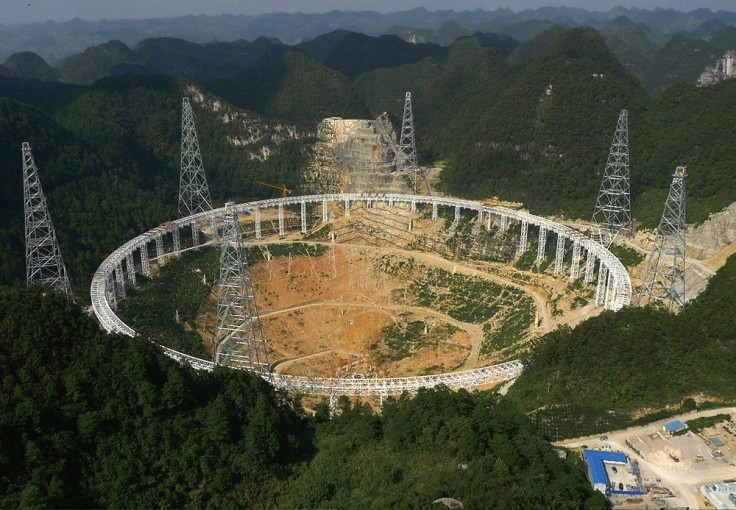CSIRO engineers design 19-beam receiver of world’s largest single dish telescope being built by China

Australia will be part of China’s aim to build the world’s largest single dish telescope. CSIRO engineers are the designers of the Five-hundred meter Aperture Spherical Radio Telescope’s (FAST) 19-beam receiver.
FAST, which would have a diameter of half a kilometre wide, is being built by the National Astronomical Observatories of the Chinese Academy of Sciences (NAOC). Once completed, it would displace the Arecibo Observatory in Puerto Rico, the current largest single-dish telescope in the world, from the top post.
Its 19-beam receiver, designed by CSIRO, would help make FAST one of the most sensitive, telescopes in the world, capable of receiving weaker and farther radio signals. With such capability, China hopes to further explore the universe’s nature, beginnings and evolution.
Dr Larry Marshall, CSIRO chief executive, says, “Global collaboration is an integral part of CSIRO’s Strategy 2020, as it maps out our desire to deliver science, technology and innovation to new customers and markets, while also delivering benefit back to Australia.”
The CSIRO design provides receivers with many separate, simultaneous beams which would make it practical for the telescope to search a larger portion of the sky in search of faint and hidden galaxies. Currently, most radio telescopes use receivers which can only see one piece of the sky at a time.
Dr Douglas Bock, acting director of CSIRO Astronomy and Space Science, says the powerful receiver that the agency designed for FAST is the result of CSIRO’s long history of developing cutting-edge astronomy technology to receive and amplify radio waves from space. By being past of FAST, it would cement Australia’s position as a global R&D leader in space technology, he adds.
Besides Australia, NAOC has the government of Guizhou Province as cooperation. Expected to be completed in 5.5 years, the project, however, has displaced about 9,000 residents of Pingtang and Luodian counties. But Xinhua News Agency says the government provided the affected residents a compensation of 12,000 yuan.





















